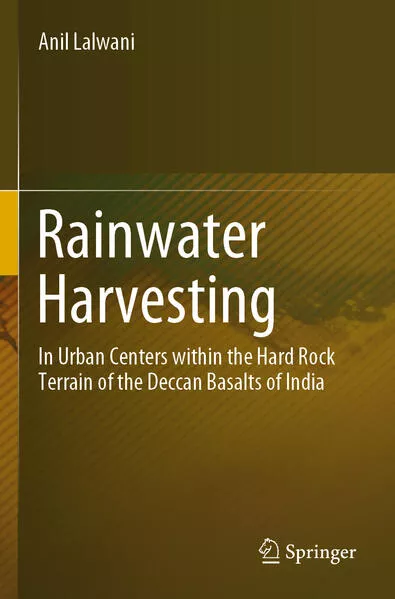
- Publikationen ca: 3
- Fragen & Antworten
Anil Lalwani
Dr. Anil LALWANI (M.Sc. ; Ph.D.), Chief Technical Officer, Well & Water Works.
A self-made professional geologist in a real sense. After achieving Master's Degree in Science in Geology, in 1985 he has evolved himself and acquired most of the working skills in an area that has been prone to water shortages and mismanagement. This aspect greatly influenced his Primary research interest in topics of water resources exploration, development & management, for which he was awarded a Ph.D. from University of Pune in 1995. Recipient of prestigious awards viz. ISRO, Junior Reserch Fellowship (Pune, India, 1986-87), DAAD Fellowship (Germany,1988-89), DAAD Revisiting Scientist Felloship, (Germany,2000); CSIR Post-Doctoral Research Associateship, (Pune, India, 1995-2000); ÖAD Felloship (Graz, Austria, 1999). Contributed to the preparation of a “Technical Manual” for Government of Maharashtra for a Rural Water and Supply & Sanitation Project, “JALSWARAJYA”, with World Bank Assistance, (2002-2003), as a member of Team representing Gherzi Eastern Limited. Have been a regular contributor on the India Water Portal- “Ask the Expert” forum. Have also contributed important information regarding the technical aspects of Rainwater harvesting in daily newspapers, and seminars and workshops since 2004.Have been involved in technically aspects of Designing Rain water harvesting for many industries, housing societies , individual bungalows in and around Pune, Mahabaleshwar, Panchgani and Mumbai area of Maharashtra India since 2003.
Rainwater Harvesting
Our dependency on groundwater resources and overuse thereof has led to a decline in water table so that in the last couple of decades the focus has shifted back to the traditional practices of rainwater harvesting, and ways and means have been sought to promote Rainwater harvesting in Urban areas to recharge the stressed groundwater systems.
Rainwater Harvesting
Our dependency on groundwater resources and overuse thereof has led to a decline in water table so that in the last couple of decades the focus has shifted back to the traditional practices of rainwater harvesting, and ways and means have been sought to promote Rainwater harvesting in Urban areas to recharge the stressed groundwater systems.
Rainwater Harvesting
Our dependency on groundwater resources and overuse thereof has led to a decline in water table so that in the last couple of decades the focus has shifted back to the traditional practices of rainwater harvesting, and ways and means have been sought to promote Rainwater harvesting in Urban areas to recharge the stressed groundwater systems.


